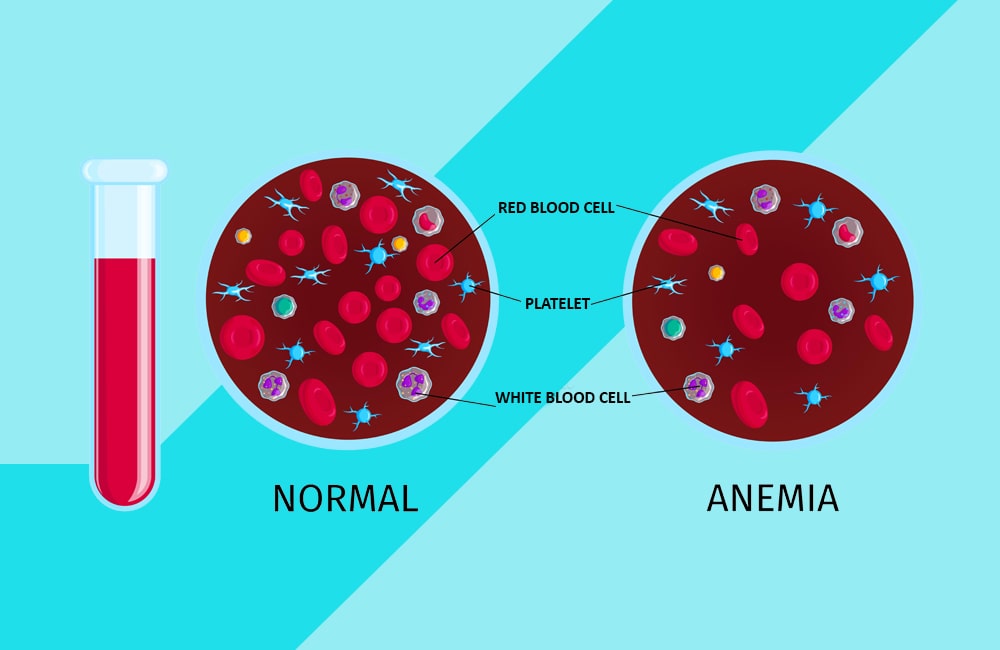
Although there are various types of anemia, iron deficiency anemia is one of the most common among them. If you have a low level of iron in your body, then it means you have iron deficiency anemia. It can develop due to a number of factors, and the symptoms may appear over time. Read on to learn about iron deficiency anemia.
What is anemia?
Anemia develops when you have a decreased hemoglobin count in your red blood cells. Hemoglobin is a type of protein in your red blood cells that is primarily responsible for carrying oxygen to tissues and organs.
What is iron deficiency anemia?
Iron deficiency anemia is a very common blood disorder that mainly affects the red blood cells. It generally develops when your body does not have enough iron to produce hemoglobin. People with iron deficiency anemia may feel shortness of breath and extreme tiredness as their body tissues or organs are not getting the oxygen they need.
How does iron deficiency impact the body?
The symptoms of iron deficiency anemia appear over the course of time. As it causes milder symptoms in the initial stage, one may not notice the symptoms and feel fine. However, at a later stage, you may feel severe weakness and tiredness. Iron deficiency anemia may cause paler skin, dizziness, and a fast heartbeat. Some people with this disorder may experience an unusual craving for non-edible things, such as paper and dirt.
Who is more likely to develop iron deficiency anemia?
Although anyone at any age can develop anemia, women who have menstrual cycles, are pregnant, or breastfeed are at greater risk of developing this blood disorder than menopausal women and men.
Other groups of people who are at risk of having iron deficiency anemia include:
What are the symptoms of iron deficiency anemia?
The symptoms of iron deficiency anemia may appear milder at the primary stage. Some people may not even understand without a thyrocare blood test.
What causes iron deficiency anemia?
Iron deficiency is the main cause of iron deficiency anemia. However, there are various reasons that can cause a person to be deficient in iron. The common causes include:
Doctors usually suggest going for a blood test to determine whether you have iron deficiency anemia. You can get this test in thyrocare blood test packages. Fortunately, anemia is treatable with proper medication and diet.